Microsoft's Universal Foldable Keyboard loves iOS, Android and Windows equally

Every mobile operating system would have you believe that it has the best built in keyboard. It's clear that plenty of people disagree judging by the number of alternative keyboard apps that exist in the Windows Phone, Apple and Android stores. Sometimes even the best software keyboard isn't good enough, but few people are enamored with the idea of carrying around a full size Bluetooth keyboard.
There are numerous mobile keyboards that are particularly suitable for use with smartphones and tablets, and today at MWC in Barcelona, Microsoft threw its hat into the ring with the Universal Foldable Keyboard. Bearing more than a passing resemblance to a large money wallet, this svelte device connects via Bluetooth to whatever mobile device you happen to be using -- including the newly announced Lumia 640 and Lumia 640 XL.
Apple could track your iPhone, iPad when turned off
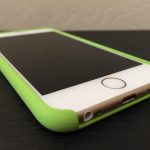
Apple has been granted a patent that could potentially allow it to track an individual’s iPhone, even when it appears to have been turned off.
The feature enables phones to enter a sleep-like state that suggests it has been shut down, but instead the phone’s movements can still be traced.
Google Wallet declares war on Apple Pay -- AT&T, Verizon and T-Mobile join fight

Google Wallet far predates Apple Pay, but even with the head start, the Android-owner has failed to impact the mobile-payment market. Meanwhile, the fruit-logo company has made a serious dent, gaining the support of many partners. Even in popular culture, Apple Pay is featured in many TV commercials, while the average consumer probably has no idea what Google Wallet even is.
Today this changes, as Google announces a strategic agreement with AT&T, Verizon and T-Mobile to pre-load Wallet on all Android handsets. Clearly, this is a declaration of war against Apple Pay, but can Google realistically win?
Android Wear works with iPhones and iPads -- no jailbreak required!

Wearables are awesome, the next big thing. Smartwatches in particular are very functional extensions of the smartphones, which have become ubiquitous nowadays. True, many tech pundits were dubious of the smartwatch's utility; including myself. I came around after actually using a smartwatch -- the Android Wear-based Samsung Gear Live -- for an extended period and loving it. My colleague Joe Wilcox is a recently converted proponent.
As great as Android Wear is, there are problems. While the most glaring is the fairly short battery life of devices, its lack of cross-platform support is a bigger issue. In other words, it can be harmful to consumers to have a product that only works with a certain platform, as it limits their freedom. An Android user with Android Wear that wants to move to an iPhone for instance, will be left with a useless smartwatch. Thanks to a developer named Mohammad Abu-Garbeyyeh, this may no longer be an issue. This impressive dev has gotten Android Wear to work with iOS. The best part? No jailbreak needed!
Dear Apple, I will switch from Android to iPhone if you meet my demands

Believe it or not, even as a big tech and gadget nerd, I have never owned an iPhone. My smartphone life went from Palm, to BlackBerry and ultimately Android. I didn't purposely boycott the iPhone or anything, it just never happened.
As an iPad owner, however, I have come to love iOS for its ease of use and collection of amazing apps. For whatever reason, I usually prefer the iOS version of apps over the Android equivalent; they seem more snappy and fluid. So, why haven't I switched to the iPhone? There are still some major issues with Apple's phone and mobile operating system that prevent the jump. The ball is in Apple's court, however, and if the company meets my demands, I will switch.
Google pushes Inbox by pulling Sparrow email client from the App Store

It's not all that long since Google launched Inbox. The 'smart' alternative to Gmail appeared a few months ago and Google tried to get the hype machine going by launching it as an invite-only service, gradually trickling out invites here and there.
Now the search giant is trying a new tactic to encourage people into using the service, specifically Apple users. Google has pulled the iOS and Mac version of the Sparrow email app from the App store; the hope is clearly that Sparrow users will migrate to Inbox.
Apple boosts iMessage and FaceTime security with two-factor authentication

It's something that has been supported by iCloud for a while now. Bringing two factor authentication to iMessage and FaceTime means that messages and video chats are now locked behind an extra layer of protection.
If you log out of your iMessage or FaceTime account, the next time you try to sign in you will be prompted to activate two factor authentication. This means you'll have to log into your account and generate an app-specific password before you can continue.
16GB iPhones and iPads quake in fear as Apple increases maximum app size to 4GB
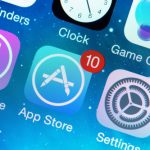
Apple is giving app developers more breathing room for their apps by increasing the maximum size of binaries from 2GB to 4GB. The move comes as devices' resolutions have grown, placing greater demands on developers' abilities to stick to the upper size limit.
Increasing the maximum size to 4GB gives greater scope for including high resolution images and video, as well as creating larger, more immersive games. While this is news that will be welcomed by developers and some iOS users, not everyone will be as pleased. Many people with 16GB devices are already struggling to find room for apps.
The kill switch works! Smartphone theft drops in major US, UK cities
Amazing! Apple wins the smartwatch wars without ever shipping a device!
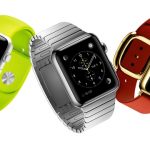
That is the only takeaway from today's brutal bias assault against Android Wear. Canalys reports half-year 2014 shipments of 720,000, and the Apple-loving free press categorizes the number as a failure. Meanwhile, the analyst firm boasts that "All eyes are now on Apple, which will reveal further details about the Apple Watch prior to its release in April". Not mine. Are yours?
Over at Wall Street Journal, Rolfe Winkler begins his hatchet piece with: "It's been a slow start for Google’s smartwatches". The search and information giant doesn't sell any of the devices, developing the underlying platform. Nitpicking aside, he ridiculously writes: "Apple sold roughly 114 million iPhones over the same period. That means Apple sold almost as many iPhones each day as makers of Android smartwaches sold over the six months". Oh yeah?
Android platform partners should think differently, or fail

Outside Apple Store, people excitedly line up to buy iPhone 6. The crowd is remarkably eclectic. Tattoos here. Mohawk there. Someone wearing a prim business suit chats with a burly biker wearing sleeveless T-Shirt. Everyone's clothes beam bright, vibrant colors. Loud laughter and uproarious chatter is everywhere. This is one happy group of buyers.
The store's doors exit onto a green pasture of sheep. Each wears a chain around its neck, with iPhone 6 attached. Cow bells appear on the screens, and clanging sounds against the chirping of birds. One animal looks up: "Baaaaaaa!" Then another, and another. An announcer asks: "Do you really want to be an iSheep?" Then the Android logo and robot flash across the screen.
Apple's core is rotting
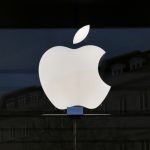
I should read Harvard Business Review more often. There, Juan Pablo Vazquez Sampere offers insightful and fresh perspective in post: "We Shouldn’t Be Dazzled by Apple’s Earnings Report". Of course, I would agree, having written something similar in past BetaNews posts. Point is the same, just the context changed. I lack his prestige and venue, and that's okay. The observations we both make aren't rocket science, or shouldn't be.
Simply stated: Atop the pinnacle of success, Apple stands at the precipice of failure. The scrappy innovator is gone, replaced by the, ah, Establishment cofounder Steve Jobs and his renegades challenged with years of guerrilla tactics. Apple has in this decade achieved huge success. But managing success is challenging, if your business model is innovation. The two objectives often work cross-purposes.
Warning -- Microsoft's new iOS Outlook app is insecure

After buying Acompli late last year, Microsoft didn’t take long to rebrand the mobile email app as Outlook and launch Android and iOS versions. But it seems that in the rush to get the app out of the door, Microsoft failed to ensure that it was suitably secure.
In fact, IBM developer René Winkelmeyer suggests that enterprise users stop using the app immediately. He was shocked to discover a trio of security issues in the mobile version of Outlook. Perhaps the most worrying discovery is that users' personal credentials are stored in the cloud -- username and password included.
Apple is boring
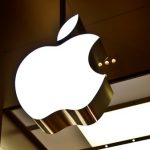
Perhaps you have seen such statement somewhere on the InterWebs sometime during the last couple of months and increasingly the past few weeks. It's a meme slowly growing -- and for good reasons. While others innovate, Apple iterates and succeeds unblushingly well. The company is mountains more successful today innovating less and taking fewer risks.
Apple is the new Microsoft, where maximizing margins matters more than innovation. Look how much more successful Apple is by being boring and following where innovators lead. Consider today's Strategy Analytics report that puts Apple and Samsung tied for calendar fourth-quarter smartphone shipments. Such scenario was all but unfathomable two quarters earlier. Yet the foundation laid long before Apple cofounder Steve Job's death, when logistics genius and now CEO Tim Cook managed day-to-day operations. Risk-to-innovation defined Jobs' management style. Cook is more tactical.
How many iPhones did Apple REALLY sell?

The official number for calendar Q4 2014 (fiscal Q1 2015), ending December 27, is 74.688 million. Got to admit, that sure looks like a rather large number of iPhones. But how big is it? Really? Apple sold in the one quarter more iPhones than during fiscal years 2007-10 (73.946 million) combined, or twice as many as sold (37.044 million) during the same three months in 2012.
On its own, iPhone generated more revenue, $51.182 billion, than all of Apple in any quarter in fiscal 2012 and, singly, three of the four quarters in each of FY 2013 and 2014. The amount also exceeds every fiscal year through 2009, which revenue was $42.905 billion.
Recent Headlines
Most Commented Stories
© 1998-2025 BetaNews, Inc. All Rights Reserved. About Us - Privacy Policy - Cookie Policy - Sitemap.
